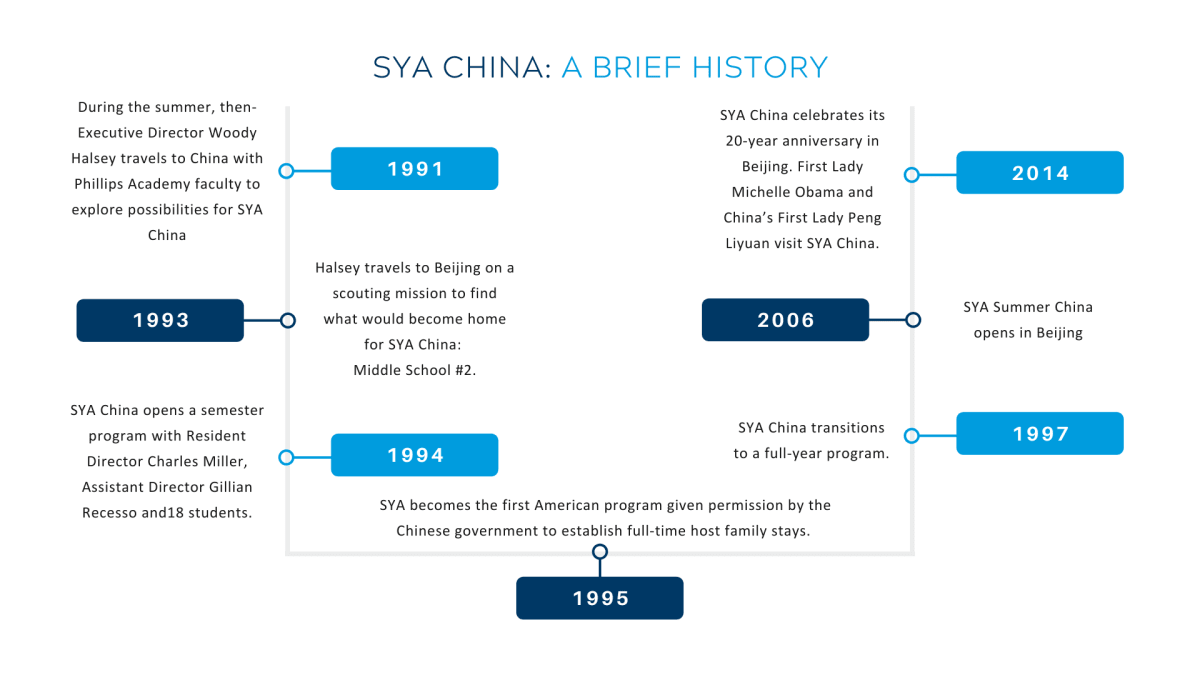Sen. Maggie Hassan’s husband, Tom Hassan, has served as president of School Year Abroad (SYA) since 2016, which sends American high schoolers around the world to foreign campuses, including one in Beijing, China — overseen by the Ministry of Education and has ties to the military.
This has happened while Rep. Hassan currently serves on the Senate Committee on Health, Education, Labor, and Pensions.
Tom Hassan has served as the president of School Year Abroad (SYA) since June 2016. Before joining SYA, he previously served as principal of an elitist school — Phillip’s Academy Exeter — where he stayed quiet about sexual allegations toward a teacher.
According to the SYA website, the group sends high school students from some of the most elite American private high schools — such as Phillips Exeter Academy, and Georgetown Day School — to schools around the world — such as China, where more than 1,100 alumni have studied at SYA’s campus in Beijing.
In 1991, then-director Woody Halsey laid the groundwork for the program with a Chinese language faculty member from Phillips Andover Academy. Eventually, SYA opened a campus in Beijing, and in 1994 they had a semester program with 18 students. In 1995, it became the first American program permitted by the Chinese government to establish full-time host family stays. In 1997, SYA China became a full-year program that would start the following year.
SYA China’s Beijing campus is located within a part of Beijing Normal University (BNU), according to an archived page of the program’s website.
A June 2017 archived portion of the page showed that “SYA China is located in Beijing housed within Middle School #2 (BNU MS #2), a model high school part of Beijing Normal University” and has a “range of options” for students to “immerse themselves even more directly in the community via language and culture exchange with peers at BNU MS#2. Additionally, a December 2017 archived page indicated that SYA also used BNU-educated professors on their faculty and staff.
Years after the exchange program started, the Australian Strategic Policy Institute (ASPI) revealed that BNU is overseen by, and is a subordinate of, China’s Ministry of Education and has numerous demonstrated ties to the Chinese military complex. ASPI acknowledged that the university was “selected as one of 42 ‘world-class’ universities under the Ministry of Education’s Double First Class University Plan—a plan that seeks to improve the global standing of China’s elite universities.”
Additionally, according to Elsa Kania, an adjunct senior fellow at the Center for New American Security, the laboratory at BNU is key to pursuing China’s initiatives in military-civil fusion (MCF) technology and China’s strategy to enhance its military, which the U.S State Department has already warned about.
Moreover, the Foundation for Defense of Democracies (FDD) acknowledged that professors from BNU “have worked on China’s development of unmanned aerial vehicles” in addition to the MCF entities. Craig Singleton, the China program deputy director and senior fellow wrote:
Beijing Normal University, have worked on China’s development of unmanned aerial vehicles as well as with MCF entities that facilitate transfers of sensitive technology between universities and Chinese industry.
Furthermore, according to the BNU website, in June 2021, a two-week military training session was held on the university campus, which concluded with a closing ceremony.
Despite all of this, exchange programs involving China and American Students have raised numerous concerns over national security and the safety of students.
FDD’s Singleton wrote in December 2021 that U.S. universities should sever all ties with Chinese universities to avoid aiding China’s military modernization. Shortly before, in November 2021, Reuters reported that the Chinese government had built surveillance systems in China’s largest provinces in order to monitor journalists and international students, among other “suspicious people.” And in 2019, an FBI report highlighted the case of Glenn Shriver, a former American student who was indoctrinated in China and then attempted to gain employment with the U.S. government for espionage.
With all of this, in 2020, the Beijing Campus was evacuated due to the Chinese coronavirus, and they have since decided not to restart the program in China since 2020 due to the lack of interest following the pandemic.
However, Tom Hassan said in a statement, “maintaining a presence in Asia (ideally Beijing) is a top priority for me and our Board of Trustees if we can find a path forward that will be sustainable.”
Sen. Hassan’s office did not return Breitbart News’ request for comment.
Jacob Bliss is a reporter for Breitbart News. Write to him at jbliss@breitbart.com or follow him on Twitter @JacobMBliss.


COMMENTS
Please let us know if you're having issues with commenting.